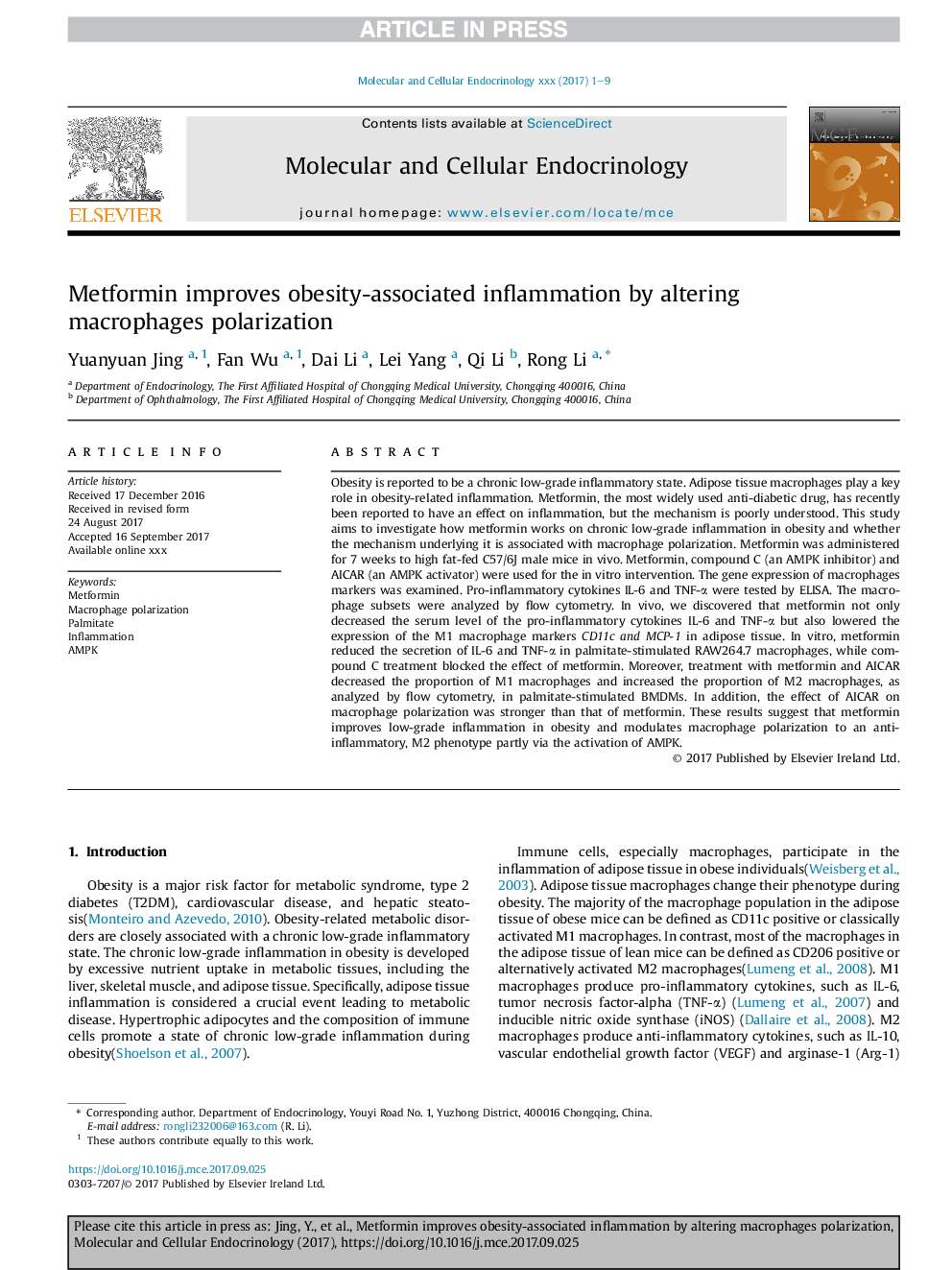| کد مقاله | کد نشریه | سال انتشار | مقاله انگلیسی | نسخه تمام متن |
|---|---|---|---|---|
| 8476593 | 1550818 | 2018 | 9 صفحه PDF | دانلود رایگان |
عنوان انگلیسی مقاله ISI
Metformin improves obesity-associated inflammation by altering macrophages polarization
ترجمه فارسی عنوان
متفورمین باعث افزایش التهاب ناشی از چاقی توسط تغییر قطبش ماکروفاژها می شود
دانلود مقاله + سفارش ترجمه
دانلود مقاله ISI انگلیسی
رایگان برای ایرانیان
کلمات کلیدی
موضوعات مرتبط
علوم زیستی و بیوفناوری
بیوشیمی، ژنتیک و زیست شناسی مولکولی
بیولوژی سلول
چکیده انگلیسی
Obesity is reported to be a chronic low-grade inflammatory state. Adipose tissue macrophages play a key role in obesity-related inflammation. Metformin, the most widely used anti-diabetic drug, has recently been reported to have an effect on inflammation, but the mechanism is poorly understood. This study aims to investigate how metformin works on chronic low-grade inflammation in obesity and whether the mechanism underlying it is associated with macrophage polarization. Metformin was administered for 7 weeks to high fat-fed C57/6J male mice in vivo. Metformin, compound C (an AMPK inhibitor) and AICAR (an AMPK activator) were used for the in vitro intervention. The gene expression of macrophages markers was examined. Pro-inflammatory cytokines IL-6 and TNF-α were tested by ELISA. The macrophage subsets were analyzed by flow cytometry. In vivo, we discovered that metformin not only decreased the serum level of the pro-inflammatory cytokines IL-6 and TNF-α but also lowered the expression of the M1 macrophage markers CD11c and MCP-1 in adipose tissue. In vitro, metformin reduced the secretion of IL-6 and TNF-α in palmitate-stimulated RAW264.7 macrophages, while compound C treatment blocked the effect of metformin. Moreover, treatment with metformin and AICAR decreased the proportion of M1 macrophages and increased the proportion of M2 macrophages, as analyzed by flow cytometry, in palmitate-stimulated BMDMs. In addition, the effect of AICAR on macrophage polarization was stronger than that of metformin. These results suggest that metformin improves low-grade inflammation in obesity and modulates macrophage polarization to an anti-inflammatory, M2 phenotype partly via the activation of AMPK.
ناشر
Database: Elsevier - ScienceDirect (ساینس دایرکت)
Journal: Molecular and Cellular Endocrinology - Volume 461, 5 February 2018, Pages 256-264
Journal: Molecular and Cellular Endocrinology - Volume 461, 5 February 2018, Pages 256-264
نویسندگان
Yuanyuan Jing, Fan Wu, Dai Li, Lei Yang, Qi Li, Rong Li,
